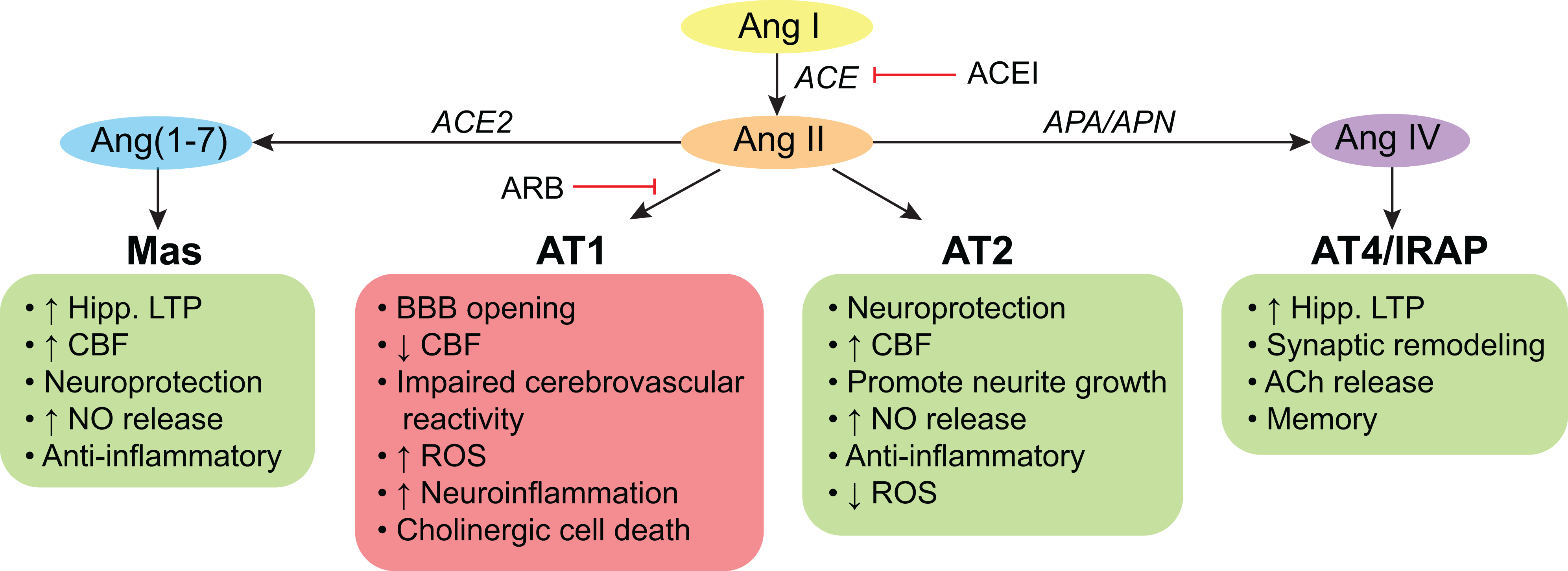Figure 1.

Actions of the brain renin-angiotensin system (RAS) on cognition.
Angiotensin (Ang) II and its derivatives, Ang(1–7) and Ang IV, may act on their receptors to exert effects on cognition. Signaling through the angiotensin type (AT) 1 receptor is deleterious for cognitive health, while signaling through the Mas, AT2, and AT4 receptors is beneficial. Thus, angiotensin type 1 receptor blockers (ARBs) are hypothesized to have greater benefits on cognitive health, because they do not block neuroprotective actions at other receptors, while angiotensin converting enzyme (ACE) inhibitors (ACEI) block all actions by preventing the formation of Ang II. However, not all RAS drugs have access to the brain parenchyma to exert these actions on cognition; therefore blood-brain barrier (BBB) permeable drugs are thus hypothesized to exert greater protection. ACh: acetylcholine, APA: aminopeptidase A, APN: aminopeptidase N, CBF: cerebral blood flow, Hipp: hippocampus, IRAP: insulin-regulated membrane aminopeptidase, LTP: long-term potentiation, NO: nitric oxide, ROS: reactive oxygen species.
